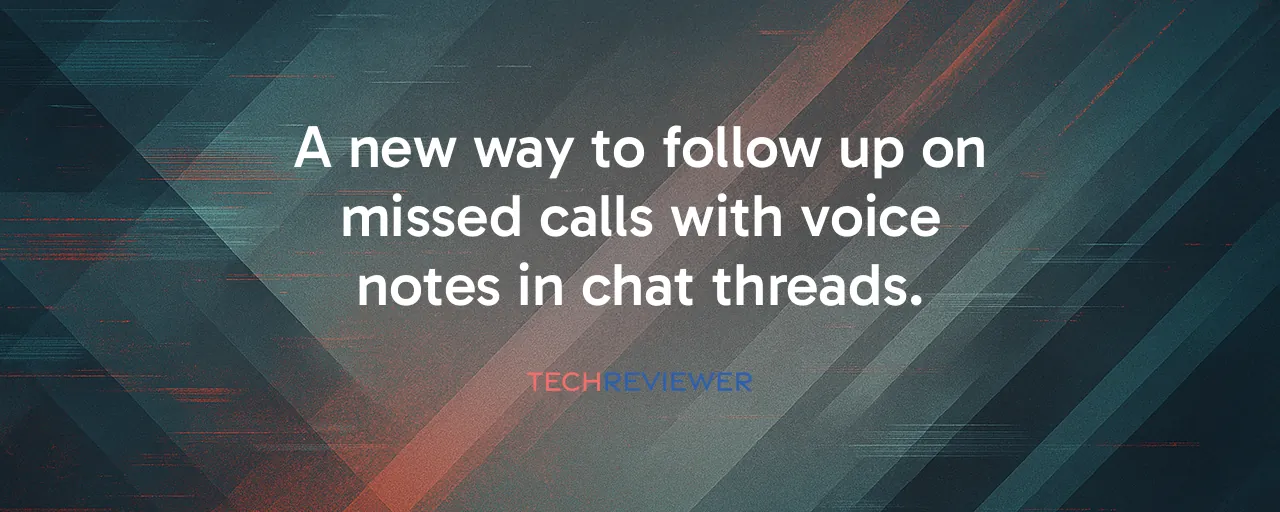A Fresh Take on Missed Calls
When a WhatsApp call goes unanswered, the moment often slips away. You might fire off a quick text or try calling again, but both can feel clunky. WhatsApp's new voicemail-style feature, launched in beta for Android users on August 22, 2025, addresses this. After a missed call, a prompt lets you record an audio message that lands right in the chat thread, just like a voice note. This small tweak has big potential, making it easier to share a quick update or heartfelt message without switching gears.
The feature smooths out rough edges in communication. Spotted in WhatsApp's Android beta version 2.25.23.21, it builds on the app's existing voice-note system, using the efficient Opus codec to keep audio crisp and lightweight. With over 2 billion monthly active users, WhatsApp's move could shift how people follow up on missed calls, especially in places where voice messages already dominate.
Real-World Impact in Brazil and India
In Brazil, where WhatsApp is practically a lifeline for family chats and small businesses, early testers have embraced the voicemail feature. For instance, a São Paulo shop owner might find that leaving a quick audio message after a missed customer call could help confirm an order faster than texting. The tone and warmth of her voice built trust, something a typed message couldn't match. This aligns with a 2024 Mobile Voice Trends survey, which found 62% of Gen Z prefer app-based voice notes for their emotional clarity.
In India, another WhatsApp stronghold, the feature streamlines micro-commerce. A Delhi-based vendor, for example, might use voicemails to clarify delivery details after missed calls from clients. The audio clips, embedded neatly in chat threads, keep conversations organized and personal. These cases show how the feature bridges gaps in busy, voice-driven cultures, though it's not without quirks, like the need for recipients to have a quiet space to listen.
Balancing Convenience With Privacy
WhatsApp's commitment to end-to-end encryption remains rock-solid with this feature. Audio messages, like voice notes, use the Double Ratchet protocol, ensuring only the sender and recipient can access them. This is a big deal for privacy advocates who worry about data security in messaging apps. Unlike traditional carrier voicemail, which can be intercepted or stored on less secure servers, WhatsApp keeps everything locked down.
Some users might find unsolicited voice messages intrusive, especially in cultures where lengthy audio clips are less welcome. Privacy researchers also point out potential risks, like sender impersonation or harassing audio, though WhatsApp's existing mute and report tools can help. Regulators in some regions might scrutinize how these audio messages are stored, especially for businesses using WhatsApp Business APIs.
What It Means for Businesses and Beyond
For small businesses, the voicemail feature could be a game-changer without the hype. Customer service teams can leave quick audio updates after missed calls, cutting down on back-and-forth texts. A café owner in Mumbai, for instance, might use it to confirm a catering order, saving time while adding a personal touch. This could pull more businesses into WhatsApp's ecosystem, especially as competitors like Telegram and Signal roll out similar call-centric tools.
On a broader scale, the feature nudges communication away from traditional phone networks toward data-driven apps. Mobile carriers might feel the pinch as users ditch conventional voicemail, which is already fading in places like India and Brazil. WhatsApp's focus on accessibility, like potential speech-to-text captions slated for future updates, could make the app more inclusive for users with limited literacy or motor skills.
Looking Ahead With Cautious Optimism
WhatsApp's voicemail feature is still in its early days, limited to Android beta testers with no confirmed iOS rollout yet. Early feedback suggests it's a practical upgrade, reducing the hassle of switching between calling and texting. Challenges remain, including the lack of server-side transcription and the risk of overwhelming users with audio overload. As WhatsApp refines the feature, possibly adding call reminders or auto-captions by late 2025, the focus is on making everyday communication feel effortless rather than flashy innovation.
The bigger picture is how these small changes ripple. By blending voice, text, and calls into one encrypted platform, WhatsApp is quietly redefining how we stay connected. Whether you're a vendor in Delhi or a family member in São Paulo, this feature offers a new way to keep the conversation going, one voice note at a time.
